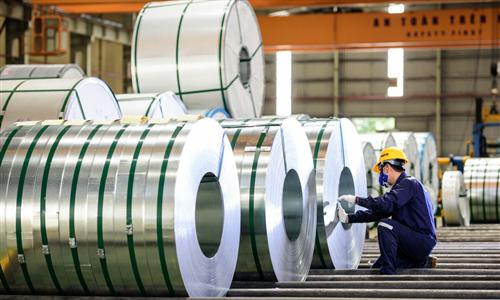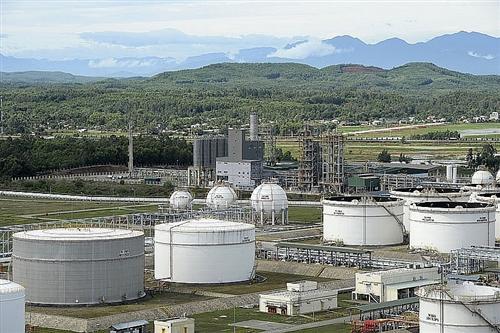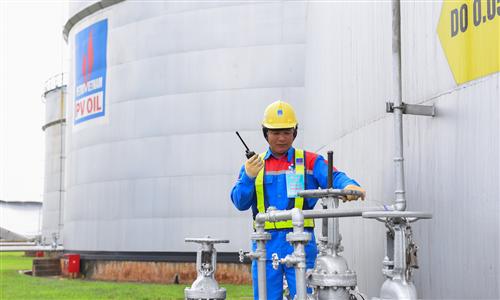Controversy around the abolishment on petrol price stabilisation fund
Controversy around the abolishment on petrol price stabilisation fund
Authorities want to maintain the petrol price stabilisation fund as a tool to keep retail prices stable and give them the ability to intervene in the market when necessary. 
But many businesses and specialists don’t agree and are calling for the fund to be abolished.
Tran Duy Dong, director of the Domestic Market Department under the Ministry of Industry and Trade said the Decree No 83 on petrol trading needs to be revised as it contained shortcomings in relation to local petrol price management.
Dong said at the time of building the decree in 2014, the domestic petrol supply was much dependent on imported resources. The import amount was up to 75 to 80 per cent of the total petrol supplies while refineries Nghi Son and Binh Son had not come into operation.
The local petrol supplies now, however, account for 70 to 75 per cent of the total. It was the reason that the petrol management and calculation for basis price should be changed to reflect the portions of locally made and imported petrol.
In the past five years, Viet Nam signed many free trade agreements (FTAs), resulting in the different import taxes for petrol products from different countries such as China, ASEAN 20 per cent and South Korea 10 per cent.
He added that the decree would be revised in eight contents relating to conditions for petrol trading and distribution system as well as reviewing the current management mechanisms. It would also revise the basis price calculation and petrol price stabilisation fund.
The modification would still maintain the Government’s direction to follow the market economy mechanism under the State management with regulatory tools. In the draft, the Government, ministries and relevant agencies agreed to keep the petrol price stabilisation fund, he added.
The supervisory delegation of the National Assembly Standing Committee in 2019 proposed to abolish it immediately or have a clear roadmap to remove many funds, including the petrol price stabilisation fund. The fund was established in 2009, with annual deductions of up to several trillion dong but people do not know how that money is used. The Viet Nam Petroleum Association (VINPA) has repeatedly asked ministries and the Government to consider the use and maintenance of the fund.
VINPA in April 2019 said the use of VND300 per litre for the fund as stipulated in Decree 83 is causing consumers and businesses to suffer from a negative fund of hundreds of billion dong. It added that the fund is taking money from petrol buyers to “stabilise” prices. So, petrol and oil buyers have been able to buy petrol at a stable price, but because of the money they have paid in advance, not by third-party intervention.
Economist Ngo Tri Long told Tien Phong (Vanguard) Newspaper that Government should review regulations relating to the petrol reserves required for at least 30 days of supply to create a healthy competition market for petrol traders.
Long said the requirement was promulgated in 2007 to ensure national energy security as Viet Nam imported almost all of its petrol at that time.
However, the local petrol supplies have met with 75 per cent of the total demand from two refineries of Binh Son and Nghi Son. The regulation therefore has not been suitable, even causing losses for society.
He calculated the total social demand for petrol products was nearly 19 million cu.m per year. The requirement of at least 30 days of supply would create inventories, increase spending and reduce effectiveness for businesses.
It is time for us to reduce the reserves to 15 or 20 days to closely follow the petrol price adjustment of every fortnight, he added.
He proposed to supplement a regulation of compulsory reserves of five to seven days for petrol distributors to ensure fairness.


























